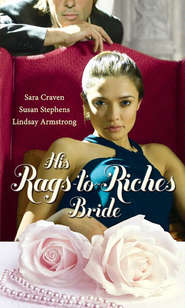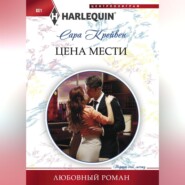По всем вопросам обращайтесь на: info@litportal.ru
(©) 2003-2024.
✖
Inherited by Her Enemy
Автор
Год написания книги
2018
Настройки чтения
Размер шрифта
Высота строк
Поля
Ginny put down her carriers. ‘Then where are you planning to live?’
‘I’m staying right here. It’s the obvious solution.’
‘To what problem exactly?’
Rosina waved an impatient hand. ‘To the future of Barrowdean. This Duchard individual will go back to France soon. He doesn’t belong here and he must know it. But—he owns this house and he needs someone to look after it in his absence. Hiring resident caretakers would cost him a fortune, so I continue to live here rent-free and, in return, I make sure Barrowdean flourishes. I’d say it was a no-brainer.’
‘I would too, but my definition of “no-brainer” is rather different.’ Ginny shook her head. ‘How did you dream up this fantasy?’
‘It’s a matter of hard practicality,’ Rosina said sharply. ‘You seem to have forgotten Cilla’s wedding. The marquee and the caterers have already been booked, and well over two hundred people will be coming.’
She nodded briskly. ‘Maybe this dinner party scheme isn’t as ludicrous as I thought. It will give us a chance to talk him round.’
‘I’m glad you think so,’ Ginny said drily. ‘It’s tomorrow night—and the Welburns are coming too.’
Rosina frowned. ‘Well, hopefully, they’ll get him to see reason, especially over the wedding.’ She paused. ‘You saw him, did you—the Duchard man? How did he seem when you issued the invitation?’
Dangerous, thought Ginny, as a shiver ran through her. Aloud, she said, ‘Surprised.’
Her mother shrugged. ‘Judging by his appearance, I wouldn’t think many dinner parties come his way. I only hope he knows how to use a knife and fork properly.’ She shuddered. ‘I cannot imagine how Andrew, always so fastidious, ever became involved with some peasant woman.’
Ginny, about to correct her, thought better of it, being unable to guarantee how Rosina might use any information she could garner.
She picked up her carriers. ‘I must see to this food.’
‘Well, come back as soon as you’ve done so. There were a lot more letters of condolence in the post just now, and I find them so painful. Perhaps you’d reply on my behalf, and get them out of the way.’
‘Maybe Cilla could help.’
Rosina sighed. ‘Cilla is lying down with one of her headaches. She’s so sensitive, poor darling, and this awful business has shaken her very badly.’
‘This awful business’ seems to have the right idea, Ginny thought bitterly as she went off to the kitchen. I’d like to shake her myself.
She threw herself into preparations for the dinner party, doing as much advance food preparation as possible, then cleaning silver, washing glasses, and giving her favourite tablecloth a crisp ironing.
By the time she took the tray with afternoon tea, egg and cress sandwiches and a Victoria sponge into the drawing room, Cilla had come downstairs and was sprawled in an armchair.
‘Did you visit this cottage?’ she asked, without turning her gaze from the old black and white movie she was watching. ‘What’s it like? How many bedrooms?’
‘Two reasonably sized and one like a storage cupboard,’ Ginny returned briefly as she set down the tray.
‘Two?’ Cilla sat up. ‘Did you hear that, Mummy? How on earth are we going to manage?’
Rosina glanced up from her magazine with a catlike smile. ‘We’ll worry about that when it happens, darling. I’ll have lemon with my tea, Virginia,’ she added. ‘I need to be careful about my weight.’
‘Well, I’m never sharing a bedroom,’ Cilla said sharply.
‘Do you include Jonathan in that sweeping statement?’ Ginny asked mildly, handing her mother her tea.
Cilla shrugged. ‘Plenty of married couples have separate bedrooms. It’s supposed to make it more exciting. Retain that air of mystery.’ She giggled. ‘And when you are available—it makes men so much more grateful.’
Ginny took her tea and a sandwich and headed for the door. ‘I never knew you were such a romantic,’ she said drily as she left.
She collected the pile of letters from the hall table and took them to the study where Barney was lying by the newly kindled fire. He looked up as she entered and tentatively thumped his tail on the carpet, clearly bewildered as to why he spent so much time in the kitchen quarters these days.
‘You and me both, sweetie,’ she told him as she sat down.
The letters were just as difficult to deal with as she’d suspected. They were imbued with grief for Andrew’s death and warmth and gratitude for his life. She read about his generosity, his fairness, and his personal kindness, particularly to former members of his workforce.
And after the first half dozen or so, she put her head down on the desk and wept a little, wondering where this man had gone, and why he’d changed so much.
* * *
By Sunday evening, winter had returned inside and out, with brief snow showers adding to the general chill.
Because all Ginny’s attempts to reason with her mother over the caretaker scheme had got nowhere.
‘Then at least ask him privately,’ she’d begged at last, but Rosina waved her away.
‘No, it’s a perfect opportunity,’ she declared buoyantly. ‘The Welburns are our nearest neighbours and he’ll want to make a good impression.’
‘Well, I don’t believe Mr Duchard will give a damn about what the neighbours think of him,’ Ginny returned wearily. ‘His home is in France so he won’t be around long enough to care.’
Her mother tutted impatiently. ‘Really, Virginia. Can you please stop being so negative. It’s very depressing.’
And being a widow isn’t? Ginny thought bitterly.
Working companionably and efficiently with Mrs Pel to produce the meal itself lifted her spirits however, and if she could only have put on her ‘Miss Finn’ pinny and simply served the food without having to join the party round the table, she’d have been happier still.
For one thing, she had no idea what to wear.
Most of the clothes in her wardrobe were of the workaday variety, entirely through her own choice. After a day on her feet in the cafе, followed by the domestic demands of Barrowdean, she was glad of the excuse to avoid the local social whirl, such as it was.
Lady Welburn had the right idea, she thought wistfully, generally appearing in a series of long skirts in jewel-coloured velvet run up for her by the village dressmaker, and teaming them with plain black cashmere tops.
She, however, would have to wear the Dress. She took it from the wardrobe and pulled a face at it. Mid-calf-length, long-sleeved and high-necked in taupe jersey, it had been bought for the Christmas before last when she was running short of time and temper.
And she could say with total truth it did nothing for her at all, except fit where it touched.
Never mind, she told herself. The best thing you can be at this blighted party is insignificant. And no more bright ideas either. They have this way of coming back to bite you in the rear.
She showered, dried her hair into its usual smooth bob, put on the taupe dress and went downstairs, knowing that neither her mother nor Cilla would put in an appearance until the last minute.
She checked the fire in the drawing room, and the drinks tray, then went along to the kitchen to fetch the bowls of nibbles.
She pushed open the door, and halted, her throat tightening in shock. Because Andre Duchard was there, perched on the edge of the kitchen table—a thing Mrs Pel never permitted—helping himself from a packet of cashew nuts.
He was wearing the dark suit again, with a white shirt setting off the sombre magnificence of a grey silk tie. That mane of hair was still too long but had at least been combed into some kind of order and, as she saw instantly, her own face warming, he had shaved.













